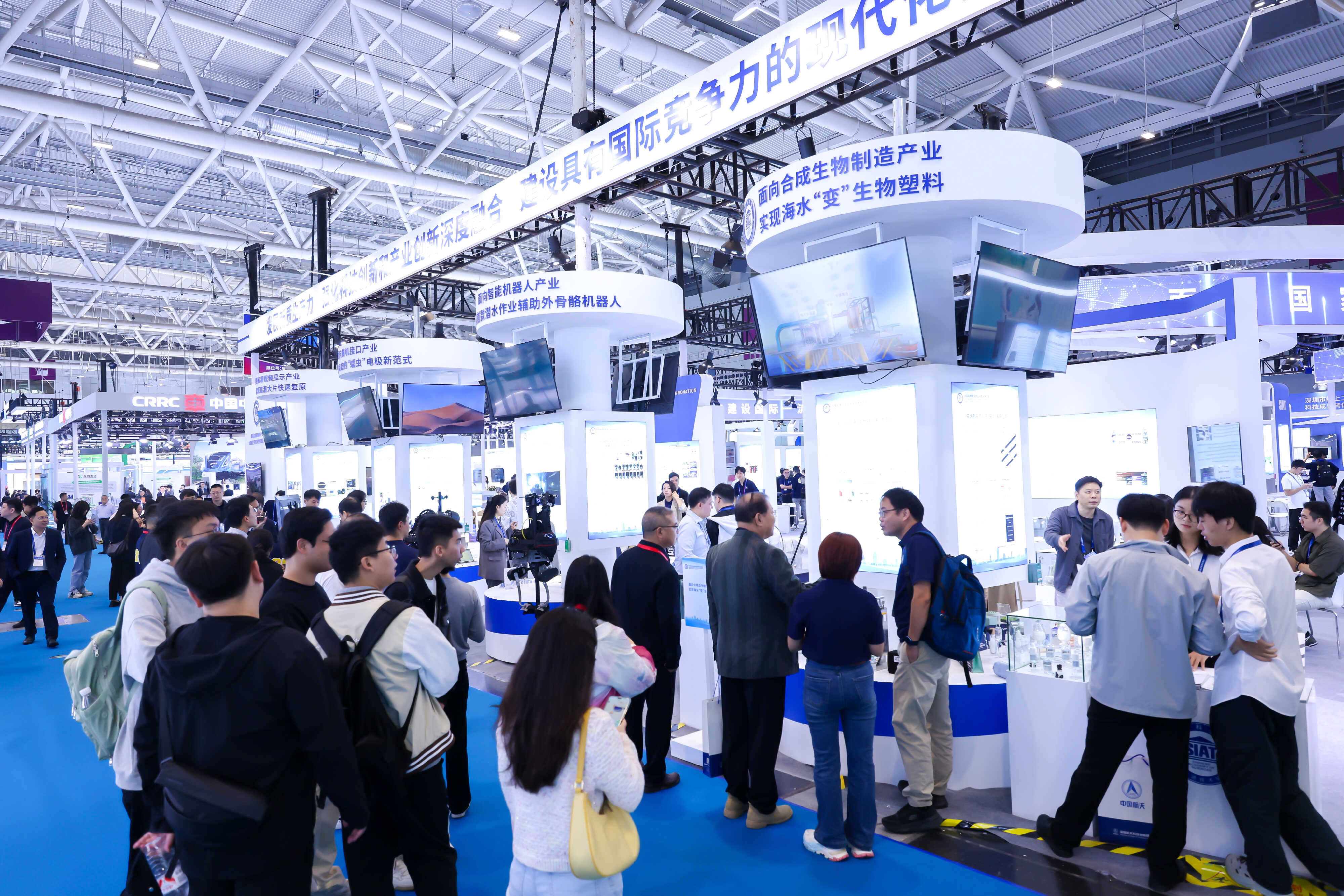
CHTF features innovative tech that coverts seawater into plastic
An innovative technology that converts natural seawater into fully biodegradable plastic turned heads as it was showcased at the 27th China Hi-Tech Fair (CHTF) in Shenzhen, Guangdong province.
Developed by the research team at the Shenzhen Institutes of Advanced Technology (SIAT), Chinese Academy of Sciences, the pioneering process captures carbon dioxide from seawater and transforms it into formic acid. This formic acid is then used to produce bioplastic monomers, like succinic acid and lactic acid, which are further synthesized into biodegradable plastics, such as polybutylene succinate and polylactic acid.
Straws, and other product prototypes, have already been produced.
"We have constructed and validated the 'Artificial Ocean Carbon Cycle System' for the first time, directly realizing the complete technological chain from 'seawater to chemicals', truly bridging the entire process of 'carbon capture — conversion — creation'," Gao Xiang, the project leader and associate researcher at SIAT, said.
This technology holds significant potential for applications in carbon dioxide capture and resource utilization, marine bio-manufacturing, biodegradable plastics, biofuels, pharmaceutical intermediates, and high-value chemical manufacturing.
The CHTF, recognized as a key platform for high-tech developments in China, is backed by the local government and is showcasing over 5,000 new technologies, products, and achievements.

The 27th China Hi-Tech Fair (Image by SIAT)

Artificial Ocean Carbon Cycle System (Image by SIAT)
File Download: